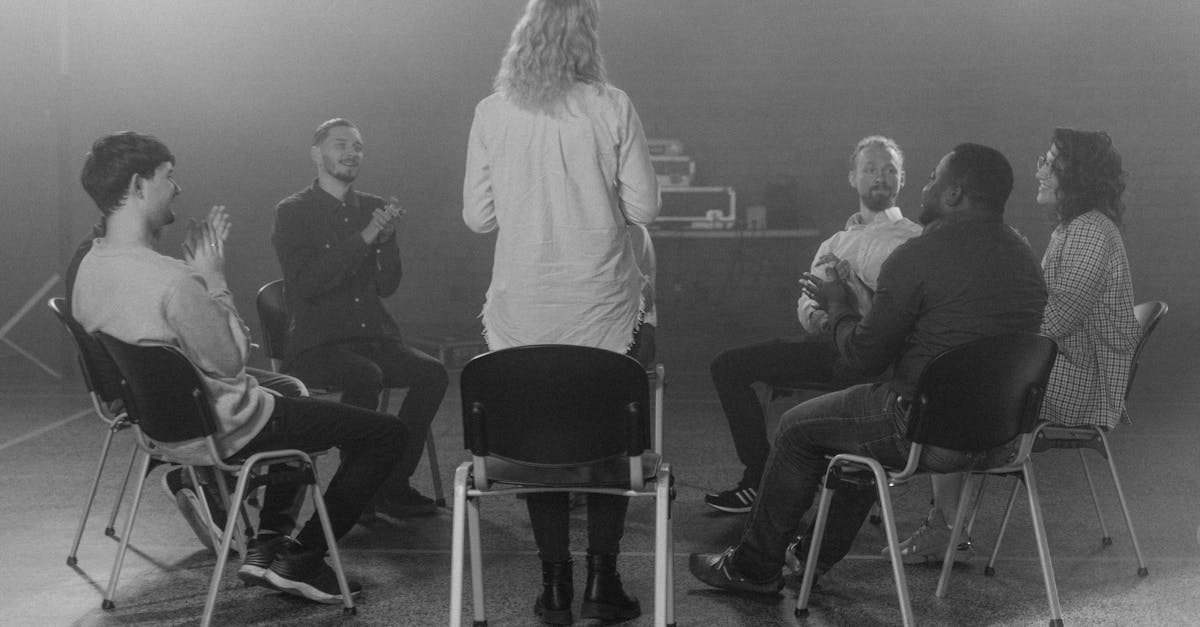
Delving into the Depths of Emotional Support in Groups
Emotional support group therapy is a widely recognised and sought-after form of assistance for individuals facing various challenges. These group sessions provide a nurturing environment where participants can openly express their emotions and share experiences with others who may be going through similar struggles. Group therapy fosters a sense of community and understanding, allowing individuals to feel supported and validated in their feelings and experiences.
The beauty of emotional support group therapy lies in the connections formed between participants. By sharing personal stories and offering empathy to one another, members of the group create a safe space where vulnerability is embraced and emotional healing can begin. Through this collective support, individuals often find strength in the group dynamic, leading to a deeper sense of connection and empowerment as they navigate their individual journeys towards healing and growth.
Heartfelt Connections
Finding solace and understanding in a supportive community can be a transformative experience in group therapy. The concept of heartfelt connections underpins the essence of emotional support group therapy, creating a safe space for individuals to share struggles, victories, and emotions. In this setting, participants forge deep connections with one another, fostering empathy, compassion, and a sense of belonging that can be profoundly healing.
Group therapy that centres on heartfelt connections allows individuals to feel seen, heard, and validated in their experiences. Through the power of shared vulnerability and mutual support, members of the group can explore their emotions, confront challenges, and gain valuable insights into their own journey. This form of therapy reinforces the notion that healing and growth can be nurtured within a collective setting, where each person contributes to the collective tapestry of empathy and understanding.
Tapping into the Strength of Support Networks
Support networks play a crucial role in providing individuals with a sense of security and connection. In the realm of group therapy, the setting of a support network can be particularly empowering. Sharing experiences and struggles with others who understand and empathise can lead to profound healing and growth. Group therapy within support networks allows individuals to feel heard, validated, and supported in a way that individual therapy sessions may not always achieve.
Australian support networks, commonly known as "mate circles," offer a unique and intimate space for individuals to come together and navigate their challenges collectively. These peer support group therapy sessions foster a sense of camaraderie and solidarity amongst participants, creating a safe environment for open and honest discussions. The strength of these support networks lies in the reciprocity of support, where each member contributes to the collective well-being of the group.
Aussie Mate Circles
Aussie Mate Circles are a quintessential form of group therapy in the Australian landscape. Encouraging camaraderie and fostering support among individuals facing similar challenges or seeking personal growth, these circles cultivate a sense of unity and belonging. Participants gather in a laid-back environment where open conversations and shared experiences create a bond that is both comforting and empowering. In Aussie Mate Circles, mateship is not just a word; it's a cornerstone that underpins the effectiveness of this group therapy approach in promoting mental well-being and resilience. Group members uplift and champion each other through life's ups and downs, forming a tight-knit community committed to each other's growth and healing.Group members uplift and champion each other through life's ups and downs, forming a tight-knit community committed to each other's growth and healing.
Integrating Mind and Body in Group Wellness Practices
When it comes to group therapy, the integration of mind and body in wellness practices has gained significant popularity. Australians are embracing the holistic approach that combines mental and physical well-being in group settings, fostering a supportive environment for individuals seeking overall health improvements. Group therapy sessions that focus on intertwining mental and physical exercises have become a cornerstone in promoting a balanced lifestyle for many.
Group yoga therapy sessions, for instance, have emerged as a leading choice for those looking to harmonise their mind and body. These sessions not only provide the physical benefits of yoga but also offer a space for individuals to connect with others on a deeper level. By engaging in group wellness practices that cater to the integration of mind and body, participants are able to work towards a unified sense of well-being, where mental and physical health are nurtured simultaneously.
Downward Dog Together
Downward Dog Together is an innovative form of group therapy that integrates the physical and mental benefits of yoga practice. Participants engage in yoga sessions led by a qualified instructor, encouraging mindfulness and relaxation through various poses and breathing techniques. This form of group therapy fosters a sense of community and connection among individuals, as they work together to improve their physical and mental well-being.
Group yoga therapy sessions, like Downward Dog Together, provide a supportive environment where participants can share their experiences and challenges while engaging in a shared activity. The practice of yoga promotes emotional awareness and stress reduction, which can be particularly beneficial in a group setting. Through regular attendance and participation in these sessions, individuals can experience the healing power of group therapy and strengthen their mind-body connection for overall wellness.
FAQS
What is group therapy?
Group therapy is a form of psychotherapy where a small group of individuals meet regularly to discuss and work through their issues with the guidance of a trained therapist.
What are the benefits of group therapy?
Group therapy offers a sense of community, support, and understanding from others facing similar challenges. It can also provide different perspectives and feedback on one's issues.
Is group therapy effective?
Research has shown that group therapy can be as effective as individual therapy for certain issues, such as depression, anxiety, and addiction. The group dynamic can offer unique healing opportunities.
How do I find a group therapy session near me?
You can search online for therapy groups in your area, ask your therapist or mental health professional for recommendations, or check with local community centres or mental health organisations for group therapy options.
Can I join a group therapy session if I'm shy or introverted?
Yes, group therapy can be beneficial for shy or introverted individuals as it provides a supportive environment to gradually open up and share experiences. The group therapist can help facilitate your participation at your comfort level.
